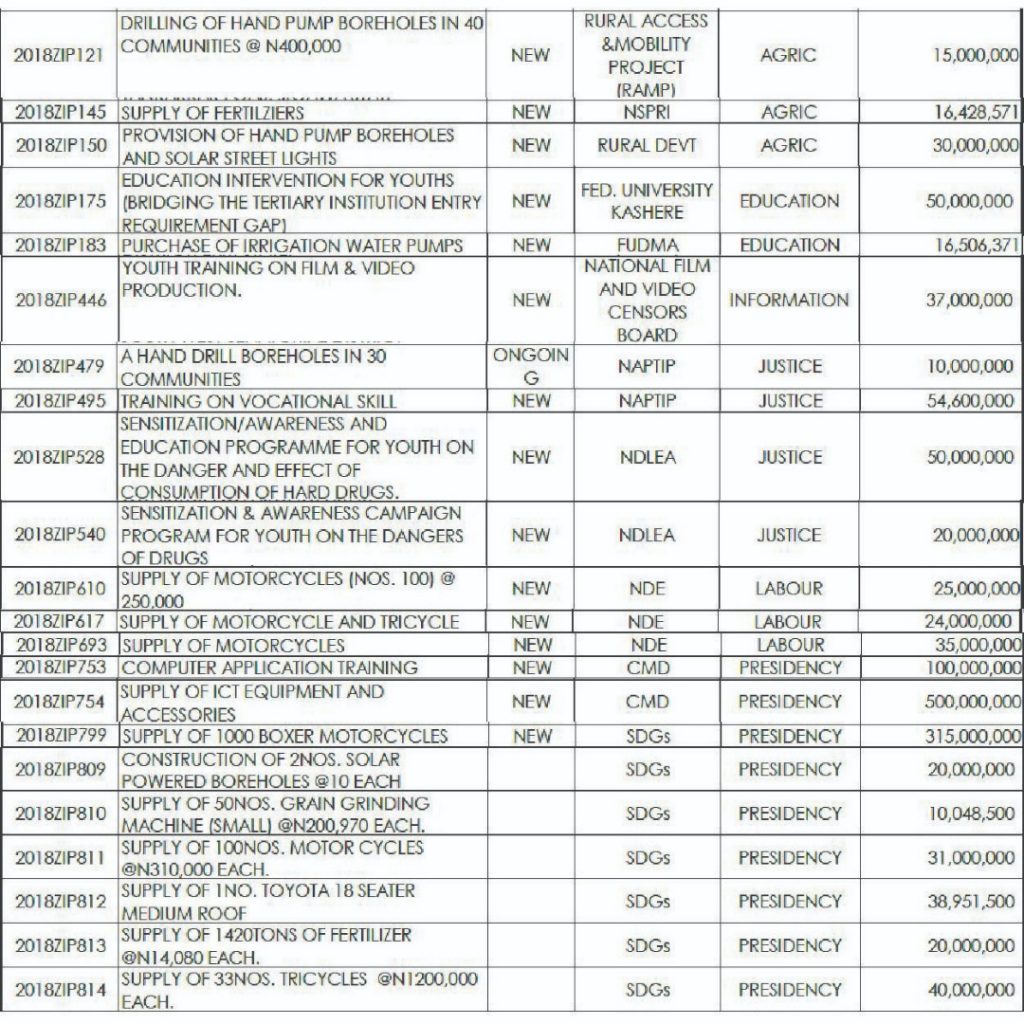by Omoleye Omoruyi
One of the unfortunate event that makes accountability and transparency in governance difficult in this part of the world is budget padding. It is a grand conspiracy between the agencies of the executive arm of government and the lawmakers to defraud Nigerians through fictitious projects that are untraceable, the cost of which sometimes run into billions of Naira.
The budget is a fiscal document that contains a unified view of the financial direction of a given government.
For clarity, to pad means – according to Merriam Webster – to “expand or increase especially with needless, misleading, or fraudulent matter.”
Hence padding is ‘filling’ or more appropriately ‘stuffing’. In the sense of a budget, padding means to make the proposal larger than the actual estimates for the project and, to be more explicit, to add unassigned projects in the budget that cannot be traced to anyone.
While going through the zonal intervention project document (Constituency projects), some items in the budget for the project are untraceable despite the amount of monies allocated to them.
To be candid, padding is a social evil. It is not enough that members of the National Assembly collect rather too high allowances but they will also insist on ‘hiding’ projects that have no designation and no way to trace them.
A former chairman of the House of Representatives Committee on Appropriations, Abdulmumin Jibrin, has hinted at the possibility of a fresh budget fraud in the 2018 Appropriation Bill recently passed by the National Assembly.
The rancour about budget padding became news when Hon. Abdulmumin Jibrin (Kiru/Bebeji), revealed extensive budget fraud by lawmakers.
Jibrin accused the Speaker, Yakubu Dogara; Deputy Speaker, Lasun Yussuf; the Chief Whip, Alhassan Ado-Doguwa; and the Minority Leader, Leo Ogor, of padding the 2016 budget with over N30 billion illicit constituency projects. He was, thereafter, suspended for a good 18 months.
He came back from the suspension and dropped another hint of padding in the 2018 budget.
“I resumed work in good time to catch up with Budget 2018. Has anything changed in our appropriation process and the budget itself since 2016? Within the week, I will be sharing my perspectives and discussing some details of the budget. I will gladly answer your questions as well,” Jibrin tweeted.
He also said some other time, “I would rather say there is corruption in the House of Representatives. Not only that there is corruption, there is institutional corruption and these are things that I can also prove and these are all the second layer of what my struggle is going to be about.”
He did not just drop a hint with his tweet, he was actually pointing us to the fact that the 2018 budget is a document filled with so many fraudulent projects. We discovered 46 projects in that manner and the monies amount to a whopping N2,950,008,920 (N2.9 billion) – that is approximately N3 billion.
See images below:

Also see the full budget here: 2018-ZIP-FINAL-COPY.
Citizens also have their share of the blame, the zonal intervention project is accessible online, it contains the constituency projects of each lawmaker, it is the duty of citizens to monitor and track the implementation of these projects. All that citizens need to do is to check through the document, see the project of their representatives, and look out for it, or send letters to their constituency office, to be sure that the project is implemented. Once they sense a foul play, they can raise alarm.
But while checking through the document, they will come across projects that are fictitious, perhaps, the fact that citizens are aware of this is enough to punch a hole in this institutionalized grand conspiracy aimed at defrauding the people. The challenge with these projects is that, the constituency hosting them are not indicated, the location where they are to be cited are missing, thus making it difficult to verify. The best citizens can do is to send a direct letter to the agencies implementing these projects to seek for information, but some of these bodies handling these projects are buried in a larger MDA, thus making such project essentially difficult to trace.
Padding has become a culture in Nigeria and the National Assembly, in collaboration with government agencies have only continued to whirl in this this backward way of life.